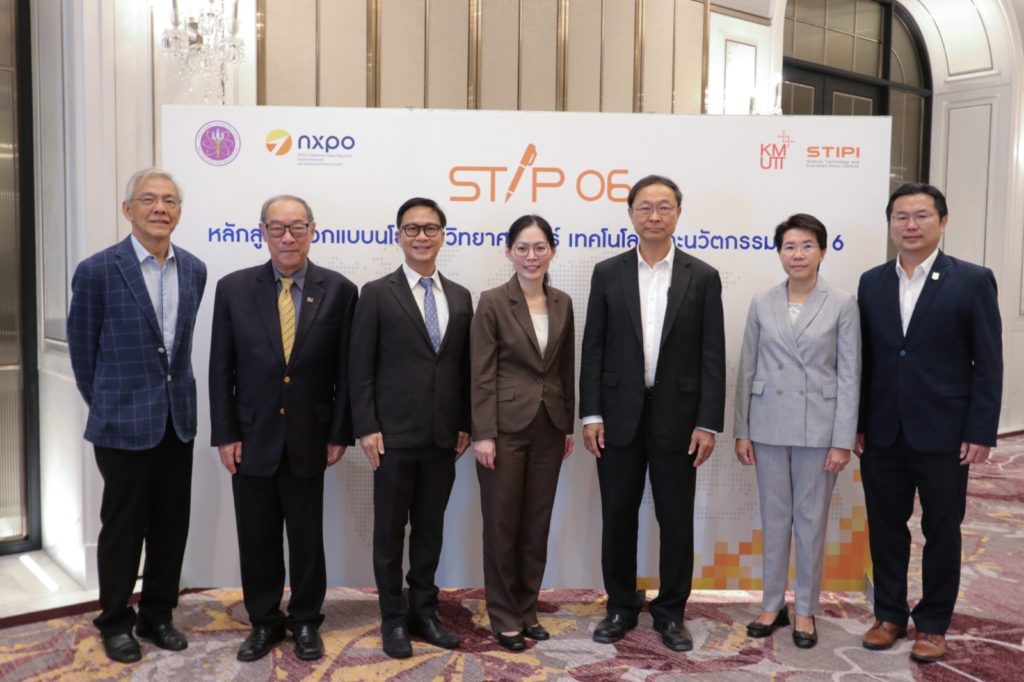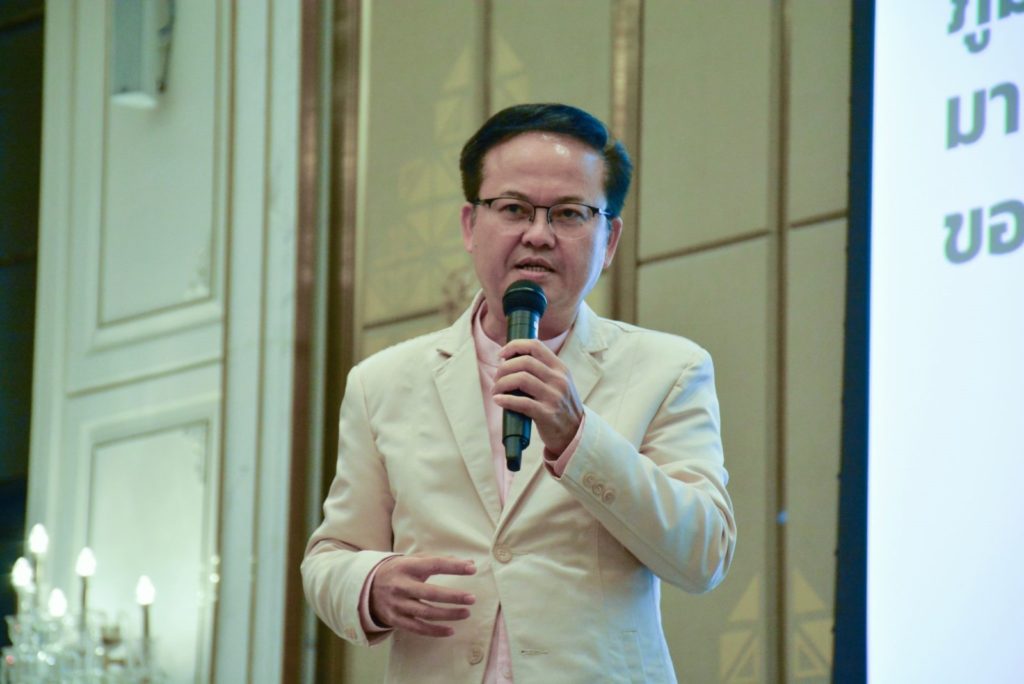NXPO, in collaboration with the Science Technology and Innovation Policy Institute (STIPI) of King Mongkut’s University of Technology Thonburi (KMUTT), hosted the opening ceremony of Science Technology and Innovation Policy Design Training Program Cohort 6 (STIP06) on 31 January 2024 at Eastin Grand Hotel Phayathai. The ceremony was attended by guests of honor, including Dr. Pichet Durongkaveroj, former Minister of Digital Economy and Society; Dr. Krissanapong Kirtikara, KMUTT Advisor; Assoc. Prof. Dr. Sakarindr Bhumiratana, Advisor to KMUTT President and Dr. Kanyawim Kirtikara, KMUTT Senior Vice President for Research and Innovation.

All distinguished guests conveyed their congratulations to participants of this year’s training program and highlighted global issues that drive science, technology, and innovation (STI) policies in Thailand. These factors, including geopolitics, technological advancements, human resource development to meet current requirements, demand robust policies to address and foster the country’s growth.

In his welcome remarks and presentation on “Geopolitics for Climate Change”, NXPO President Dr. Kitipong Promwong, discussed the geopolitical implications of climate change that extend beyond the sustainability of resources. These include the UN Sustainable Development Goals, trade, investment, stock markets, migration, oil production policies in the Middle East region, technology, intellectual property, and university rankings. He also elaborated on NXPO’s role as the national designated entity (NDE) for the technology mechanism of the United Nations Framework Convention on Climate Change (UNFCCC) which focuses on mitigation, adaptation and loss and damage.




“Last year, NXPO participated in the 2023 United Nations Climate Change Conference (COP28) held in Dubai, United Arab Emirates (UAE). COP28 gathered world leaders and experts to discuss policies and directions to curb climate change. The conference also featured six concurrent meetings. As one of the co-organizers of the Thailand Pavilion during COP28, NXPO organized the Innovation Zone exhibition and three side events within the Thailand Pavilion, reflecting on initiatives undertaken by NXPO to reduce greenhouse gas emissions in Thailand,” said Dr. Kitipong.
Dr. Kitipong further highlighted Thailand’s National Adaptation Plan (NAP), aiming to build adaptive capacity and enhance climate resilience in 6 priority sectors including water resources management, tourism, agriculture and food security, public health, natural resources management, and human settlements and security. He discussed the implementation of various cross-cutting programs and Thailand’s requirements. Initiatives implemented by NXPO to achieve the country’s greenhouse gas reduction goals include the Green Campus and Saraburi Sandbox. The Green Campus is a campaign aiming to advance the net zero emission goal in fifty participating universities through the implementation of climate technologies such as solar rood and smart grid and raising awareness on energy conservation among university staff members and students. The Saraburi Sandbox is set to establish a low-carbon city model in Saraburi province through a public-private partnership and international collaboration.


Throughout the event, participants took part in various activities, including ice breaking, networking and group projects, allowing them to get to know one another and fostering a learning experience.
The STI Policy Design Training Program aims to build Thailand’s capability in STI and public policy development and create a policy network whereby people from various organizations can come together to drive policies essential for the national development. STIP06 has 63 participants from 34 organizations, representing program management units, research institutes, universities and enterprises.






